When dreaming of that perfect homestead, many of us envision a yard full of happy poultry scratching about, providing fresh eggs and endless entertainment. But each choice comes with its own complexities, and choosing between ducks and chickens is no exception.
In this article, we’re comparing chickens vs ducks on a dozen different factors.
Egg Production and Quality
Let’s start with the reason most people consider poultry: egg production. Both chickens and ducks can be excellent layers, but there are some important differences.
Chicken eggs are what most people are familiar with – they’re widely accepted in recipes and easier to sell if that’s part of the homestead plan. A good laying hen can produce 250-300 eggs annually, depending on the breed and conditions.
Duck eggs are larger and richer, with a higher fat content that makes them excellent for baking. While they might produce slightly fewer eggs annually (about 200-250 for good laying breeds), duck eggs contain more protein and minerals than chicken eggs. The taste and texture are slightly different; some call them an acquired taste.
Space and Housing Requirements
Both ducks and chickens need proper housing, but their requirements differ significantly.
Chickens need secure, elevated housing with roosting bars and nesting boxes. They’re relatively adaptable to different coop designs, as long as they have about 4 square feet of coop space per bird and 10 square feet of run space each.
Ducks, on the other hand, are ground-dwellers and don’t have use for roosting bars or elevated spaces. While they require similar square footage to chickens, their housing needs to be draft-free at duck level and include wider doorways.
Ducks can be a whole lot messier than chickens; they love splashing water everywhere, and their living space may require more frequent cleaning to manage the moisture levels.
Predator Resilience
Chickens, particularly lighter breeds, tend to be more flighty and quick to sound the alarm when predators approach. Their ability to roost up high at night provides some natural protection, and their excellent eyesight helps them spot aerial predators during the day.
Ducks are generally less reactive to predator threats, but they have their own survival advantages. Their stronger neck muscles and thicker feathers provide better protection against attacks, and most duck breeds are surprisingly strong swimmers – a useful escape route when water is nearby. However, their ground-dwelling nature can make them more vulnerable at night, which means they need secure fencing.
For both species, the key to predator protection lies in proper housing design: buried fencing, secure latches, and overhead protection are essential. Match your housing design and choice of bird to the types of predators that can be found in your area. If your top predators come from the skies, chickens might need more protected run space, while in regions with more ground predators, ducks’ hardier nature might be an advantage.
Behavior and Family-Friendliness
Chickens tend to develop distinct personalities, and many breeds are known for being docile and friendly when handled regularly from a young age. They can learn to recognize their caretakers and even come when called. However, some roosters can become territorial and protective, requiring careful management around small children.
Ducks often show more cohesive flock behavior and can be wonderfully social with humans. They tend to be less likely to peck than chickens, making them generally excellent around children. Their calmer nature means they’re less likely to be startled by sudden movements – a definite plus with active kids around. That said, drakes (male ducks) can also become territorial during breeding season, though typically less aggressively than roosters.
Both birds can be great with children, but they interact differently:
Chickens:
- More likely to enjoy being held and petted individually
- Can be trained to come for treats
- May establish a clear pecking order that includes humans
- Often more interested in interactive play
- Need gentle handling to maintain friendliness
Ducks:
- Prefer to be approached at their level
- More likely to stay together as a group
- Generally more tolerant of chaos and activity
- Less keen on being handled but enjoy following their humans around
- Maintain consistent behavior with less need for regular handling
Feed and Foraging
Here’s where things get interesting from a self-sufficiency perspective. Both birds are excellent foragers, but they focus on different food sources. Chickens are masters at scratching up insects, seeds, and plants, making them excellent garden assistants when managed properly. They’re particularly good at controlling garden pests and turning over soil.
Ducks, meanwhile, are professional slug and snail hunters. For those in wetter climates where slugs may ruin your garden, ducks can be game-changers. They’re also excellent at finding insects and weeds in lawn areas, and their flat bills do less damage to grass than chickens’ scratching.
Weather Resilience
One often-overlooked aspect of poultry keeping is how different birds handle various weather conditions. Chickens generally prefer dry conditions and need protection from rain and snow. They can handle cold temperatures quite well if their coop is draft-free, but wet conditions can lead to health issues.
Ducks, true to their wild nature, are remarkably weatherproof. Their waterproof feathers and robust constitution make them more resilient in wet and cold conditions. However, they still need shelter from extreme weather, even if they seem unbothered by rain.
Water Management
One of the biggest differences between chickens and ducks lies in water management. Chickens need clean drinking water, but they’re generally neat about it. A simple drinking system works well, and they don’t create much mess around their water sources.
Ducks… well, ducks love water. They need enough water to dip their entire heads in to keep their eyes and nostrils clean, and they’ll try to splash and play in any water source they find. While they don’t absolutely need a pond to be happy (contrary to popular belief), they do create more water-related mess than chickens. This means more frequent cleaning and better drainage systems are necessary.
Noise Levels
Both birds make noise, but in different ways. Roosters are famous for their early morning crowing, while male ducks (drakes) make a quieter, raspy sound. Female chickens tend to be quieter, making occasional squawking noises, particularly after laying eggs.
Female ducks, especially Muscovy breeds, are relatively quiet, but other breeds like Pekins and Runners can be quite vocal. Their quacking can carry further than chicken noises, something to consider if there are nearby neighbors or if the coop is right next to your house.
Integration with Other Homestead Activities
Both birds can be integrated into various homestead systems, but they shine in different areas. Chickens excel at:
- Turning compost piles
- Preparing garden beds through scratching
- Cleaning up fallen fruit
- Controlling insects in the garden
Ducks particularly excel at:
- Managing slugs and snails
- Weeding wet areas
- Fertilizing lawns
- Controlling insects in water features
Health and Longevity
When it comes to health management, chickens and ducks each have their pros and cons. Chickens are more susceptible to respiratory issues and require dust baths for feather health. They’re also more prone to certain diseases that can spread quickly in a flock.
Ducks tend to be hardier and less prone to common poultry diseases. Their waterproof feathers and different respiratory system make them more resistant to many common chicken ailments. However, they still need proper care and can develop health issues if their living conditions aren’t maintained properly.
Making the Choice
The decision between ducks and chickens often comes down to specific homestead conditions and goals. Factors to keep in mind are:
- Local climate (ducks handle wet conditions better)
- Available space and drainage
- Noise restrictions
- Preferred egg types
- Specific pest control needs
- Time available for maintenance
- Family dynamics and children’s ages
- Local predator species
Many homesteaders find that a mixed flock offers the best of both worlds, though it’s usually best to start with one type and add others once you’ve gained a bit of experience. Both birds can be wonderful additions to a homestead, each bringing their own unique benefits and challenges to the journey toward self-sufficiency.

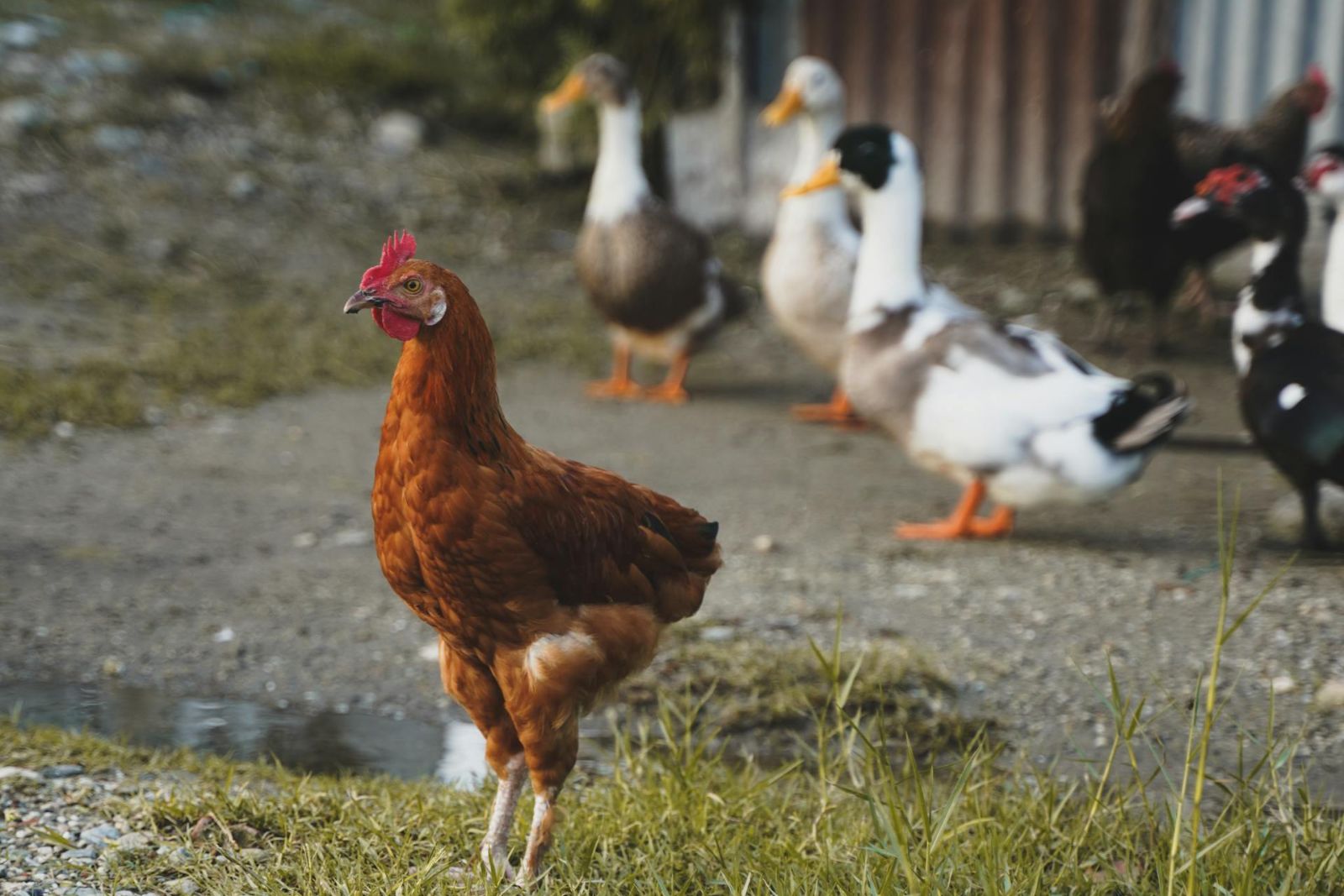
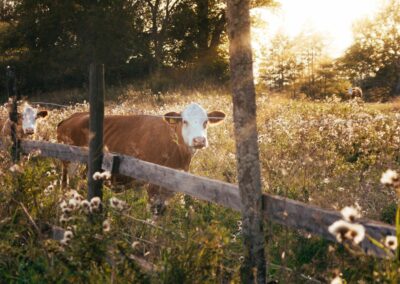
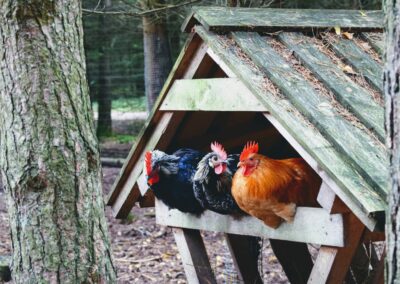
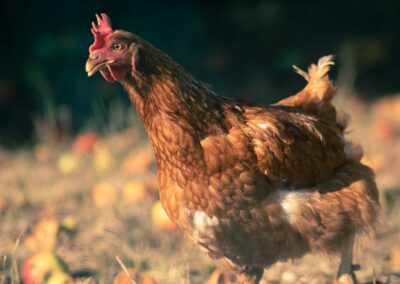
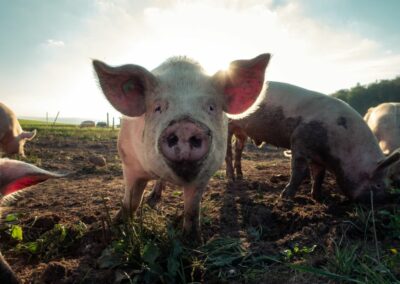
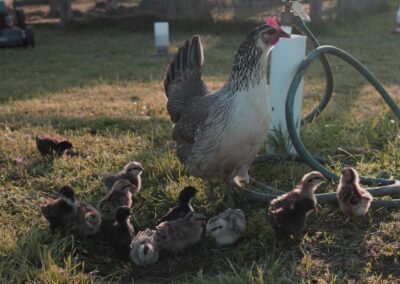
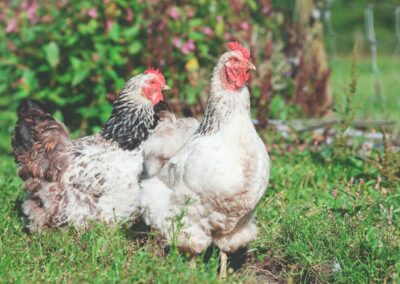

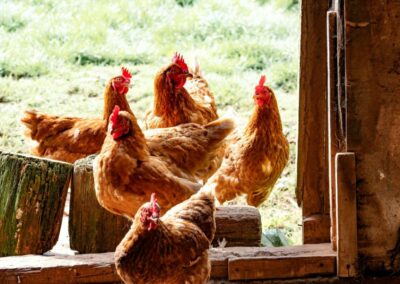
0 Comments